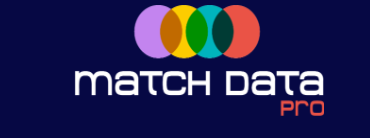In the digital age, businesses generate massive amounts of data, much of which is stored in various formats across different platforms. Managing this information efficiently is key to ensuring that businesses can make data-driven decisions. However, one of the challenges faced is the inconsistency and lack of standardization in data, which can lead to errors in analysis and decision-making. This is where fuzzy search tools, fuzzy matching software, data standardization tools, and merge database software come into play. These technologies help streamline data processing, improve accuracy, and ensure consistency across datasets.
What is Fuzzy Search and Fuzzy Matching?
Fuzzy Search Tools: The Basics
Fuzzy search tools are designed to find matches that are close to, but not exactly the same as, a given query. These tools are particularly useful in dealing with imperfect, incomplete, or misspelled data. For example, in a database containing customer names, fuzzy search tools can identify records for “Jon” when the user searches for “John,” or find “Micheal” when searching for “Michael.” This helps overcome the limitations of traditional exact-match search algorithms that fail to return results if the search term is slightly misspelled or formatted differently.
Fuzzy Matching Software
Fuzzy matching software goes beyond simple search. It compares strings of text and identifies similar entries even if there are variations in spelling, punctuation, or format. The core of fuzzy matching is the Levenshtein distance, which measures the number of edits (insertions, deletions, or substitutions) needed to change one string into another. These algorithms are invaluable when working with large datasets where data entries are inconsistent or where small discrepancies can lead to mismatched results.
Fuzzy matching is especially useful in scenarios such as data cleaning, customer relationship management (CRM) systems, or fraud detection, where the goal is to match records that may not be perfectly uniform.
The Role of Data Standardization Tools
Data standardization tools play a crucial role in ensuring that data across various systems, databases, and sources follows a consistent format. Inconsistent data formats, units of measurement, or naming conventions can hinder analysis and decision-making. Standardization involves transforming this unstructured data into a uniform format, making it easier to integrate, analyze, and use.
For instance, data standardization can help unify address formats, date formats, or product codes, ensuring that different departments or systems within a company are working with the same information. This ensures smoother interoperability between systems, more accurate reporting, and better decision-making.
Merging Databases with Software
In many businesses, data exists in multiple databases or systems, and merging these datasets can be a challenging task. Merge database software is designed to help combine multiple datasets into one cohesive database while maintaining data integrity and minimizing duplication. This is essential for businesses looking to create a unified view of their data across various platforms.
Merge database software uses advanced algorithms to detect duplicates and ensure that data from different sources is consolidated in a way that doesn’t lead to redundancy or conflict. This is especially valuable when consolidating customer data, inventory information, or financial records, where accurate and clean data is crucial.
Conclusion
The combination of fuzzy search tools, fuzzy matching software, data standardization tools, and merge database software offers businesses powerful capabilities to manage and optimize their data. By using these technologies, companies can overcome challenges related to inconsistent data entry, data duplication, and mismatched records. This ensures a higher level of data accuracy, improved decision-making, and enhanced operational efficiency.





Comments